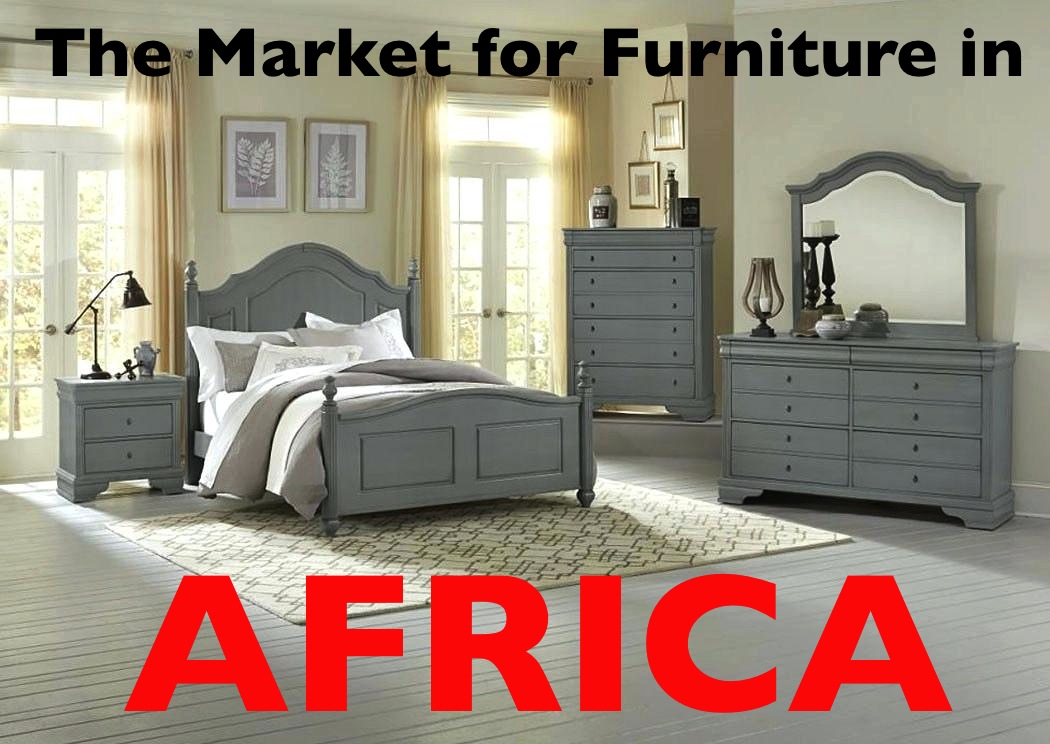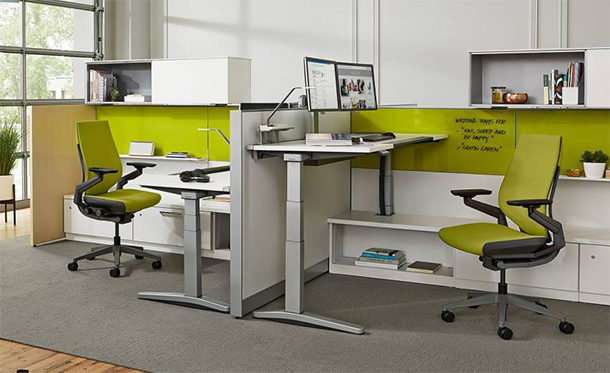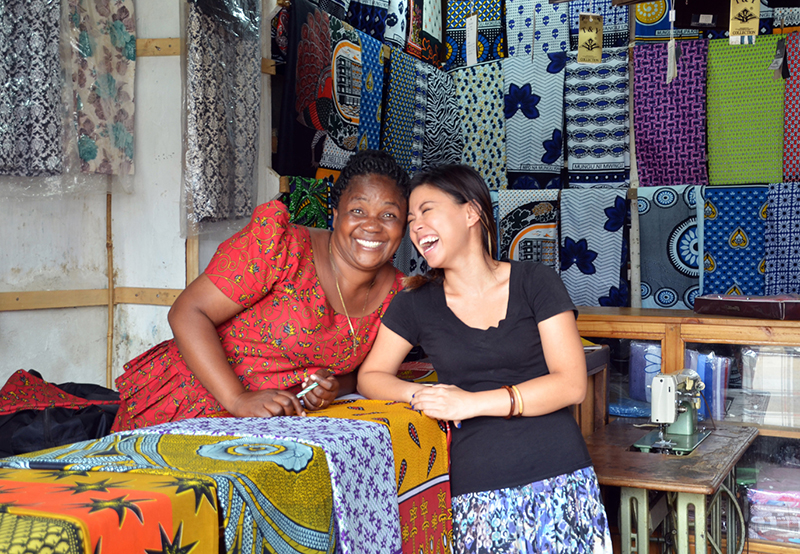The Market for Furniture in Africa
With the growing population in Africa demand for home and office furniture is simultaneously increasing. When people move into a new home, they need a bed to sleep on, wardrobes for their clothes, chairs, a dining table, sofas, kitchen cabinets and all kinds of furniture. Like households, offices also buy a lot of furniture too.
African is fast emerging as an important market for furniture on a global scale. Total furniture imports into Africa amounted to more than US$ 5 billion in 2018. Ten main furniture importing African countries (each of them importing over US$ 100 million of furniture) are Angola, Morocco, Libya, Nigeria, Algeria, Kenya, Egypt, Ghana and Sudan.
Furniture Market in Africa
Africa is a huge pool of population, which is projected to expand and grow rapidly. By 2050, 2.4 billion more people are expected on the planet out of which 1.3 billion are expected to be born in Africa. The majority of the world’s population growth is expected to take place in Africa – making the continent one of the most attractive markets in the world.
Africa’s rapidly growing urban population and their spending capacity, along with the growing economy are the primary reasons why furniture business is enjoying the best time of its life.
Rapid Urbanisation in Africa
Urbanisation process is expected to be very rapid, particularly in Sub Saharan Africa and large urban areas will be the frontiers of economic growth with important implications for the increase of furniture consumption. Despite political instability and relative poor infrastructure level in some areas, there is evidence of numerous urban centres, which offer potential for growth for the furniture market. These cities are increasingly diversifying their economy. In recent years, huge investments have been made in real estate, tourism and hospitality industry, culture and entertainment, which have boosted demand for the furniture sector.
 More and more number of people are moving to cities from villages, in order to seek better medical facilities, education, sanitation and employment opportunities.At the current rate of growth, more than 500 million Africans will move to cities by 2030. As the population in African cities and towns increases, this will naturally create a profound and genuine need for real estate; residential accommodation, office space, hotels and schools everywhere in Africa.
More and more number of people are moving to cities from villages, in order to seek better medical facilities, education, sanitation and employment opportunities.At the current rate of growth, more than 500 million Africans will move to cities by 2030. As the population in African cities and towns increases, this will naturally create a profound and genuine need for real estate; residential accommodation, office space, hotels and schools everywhere in Africa.
Office buildings, hospitals, schools, luxury hotels, premium guest houses, residential apartments and societies, shopping malls and theatres are being constructed everywhere in African cities. As this trend of more people moving into new homes and establishing new business offices continues, furniture will be required. When new schools are built, desks and chairs will be needed. New hotels often require skillfully designed beds, stylish wardrobes and various other fixtures and fittings.
Furniture Importers in Africa
This is just a short glimpse of a rewarding business stream which is waiting to be explored. Several African countries have good potential for developing their furniture industry, both for internal consumption and for exports. The more promising prospects are in South Africa, Egypt, Morocco and Nigeria, but also Namibia, Tunisia, Kenya, Zimbabwe are possible candidates for a relevant expansion of their furniture production.The global economy is prophesized to grow by 2 to 3 percent between the years 2011- 2020. Africa is projected to grow approximately by 6%. The reason behind these projections is the rising middle class in the African cities. These people are the dwellers, who migrates from the rural areas and villages to the cities for employment prospects. This class includes salaried job holders, small and medium scale business owners.
 The sales for the imported custom made furniture has been increasing since the last 3 years. In order to start up furniture business in Africa, one should know the needs and demands of the customers being targeted. Some buyers are more concerned about beauty, quality and durability of the furniture, and will pay high prices to get furniture that meets these requirements. Some other buyers are highly influenced by cost and their choices are restricted to the price of the furniture. They will love to have beautiful and high quality furniture only if it can fit into their budget. Some customers prefer imported furniture and some prefer the local one.
The sales for the imported custom made furniture has been increasing since the last 3 years. In order to start up furniture business in Africa, one should know the needs and demands of the customers being targeted. Some buyers are more concerned about beauty, quality and durability of the furniture, and will pay high prices to get furniture that meets these requirements. Some other buyers are highly influenced by cost and their choices are restricted to the price of the furniture. They will love to have beautiful and high quality furniture only if it can fit into their budget. Some customers prefer imported furniture and some prefer the local one.
The key to succeed and make money is the ability to fulfill the needs and taste of buyers. Some of the countries like Nigeria, in order to develop the local furniture industry and to create the employment opportunities introduced a ban on the imported furniture. In countries like these, it is advisable to form joint- ventures with the local manufacturers. There are certain advantages which one could get in forming a collaboration with local manufacturers. It will provide you a platter of the information about the latest market trends, taste, opportunities and much more. Not much research and development would be required. Furthermore, setting up a business in a joint venture with local manufacturer would prove to be cost effective as compared to establishing one’s own enterprise.
Export Furniture to Africa
East Africa furniture market alone is estimated to be worth $1.2 billion. Kenya is rated as the dominant market in the East African region with furniture imports worth $89 million in 2018.
South African Furniture Market
South African manufacturing sales of furniture at current prices amounted to R16 billion in 2018. South Africa has a total of 2,200 registered companies in the furniture manufacturing sector, employing 26,400 people. During 2018, South Africa was Africa's second-largest furniture exporter, with exports reaching R4.2 billion.
North Africa: Increasing Demand for Furniture
Algeria is the largest consumer of furniture in North Africa, followed by Egypt and Morocco, with local manufacturers accounting for more than 68% of the furniture market. Egypt, Algeria, and Mauritania have very low market exposure.
West Africa
Nigeria is the largest consumer of furniture (a fast-growing market), followed by Ghana and Ivory Coast. In West Africa, local manufacturers account for more than 70% of the furniture market.
Central Africa
Consumption level for both home and office furniture is the lowest in Central Africa, with local manufacturers accounting for 64% of the furniture market. The largest consumer is the Democratic Republic of the Congo, followed by Cameroon and Gabon.
East Africa
Ethiopia is the largest consumer in the East Africa region, followed by Kenya, Tanzania, and Uganda. The fastest growing markets in the region are Ethiopia and Uganda.
Southern Africa
Africa’s second largest furniture market is the Southern Africa region. Local manufacturers account for 50% of the furniture market while the other 50% is mostly imported from various parts of the world. South Africa is the largest furniture import market, followed by Angola with broad growth prospects.
North and Southern Africa import the most in Africa. Southern Africa accounted for the highest share of imported furniture consumption, accounting for 37%, while North Africa accounted for 30%.
Nigeria: An Important Market for Furniture
The Nigeria furniture market is a thriving one thanks to the government’s decision to place an embargo on the importation of furniture into the country. The goal of the decision to ban the importation was to protect the local industries involved in the manufacture of these furniture items and this has been of huge benefit.
Although the finished products in Nigeria are yet to be at par with those from countries like Italy and Spain however it is clear that progress is being made in the industry. One of the advantages of local manufacturing of furniture is the low labour costs which enables these items compete on price with their foreign counterparts as the cost of labour, freight charges and the import duties often make them expensive.
However, there is still more to be done in terms of empowering local manufacturers in the Nigerian furniture market as there are some foreign competitors with factories in the country. If this can be done, the quality of local furniture can be as good as that of their foreign counterparts.
The bottom line is that the projected increase in the demand for home and office furniture in Africa is driving the growth of furniture industry in Africa. It’s the perfect time to invest in this booming sector!
Africa Furniture Importers Directory
Furniture importers in Africa have been buying ever increasing quantities of furniture from all across the world in order to meet the rising demand for both home and office furniture amongst African buyers.
As local furniture manufacturers in Africa are not able to meet the rising demand for furniture, importers of furniture in Africa have been buying from overseas suppliers to meet the rising demand for furniture amongst African consumers.
 The Africa Furniture Importers Directory has been compiled with the sole purpose of promoting direct B2B contacts between African importers of furniture and global suppliers. The Africa Furniture Importers Directory provides exporters of furniture a comprehensive database of importers of furniture in Africa and helps them contact them directly.
The Africa Furniture Importers Directory has been compiled with the sole purpose of promoting direct B2B contacts between African importers of furniture and global suppliers. The Africa Furniture Importers Directory provides exporters of furniture a comprehensive database of importers of furniture in Africa and helps them contact them directly.
Online sales as well as email marketing has been playing an ever important role in promoting B2B contacts and generating sales leads – specially so in Africa where other forms of media and promotional tools are not as effective.
The Africa Furniture Importers Directory can be downloaded now in Excel format for a nominal cost. Many furniture exporters and manufacturers have used the directory to contact their potential buyers in Africa, send them product catalogs via email, conduct email marketing campaigns to their target audience in Africa and develop direct contact with importers of furniture in over 35 African countries.
By compiling a well researched list of furniture importers in Africa, the Africa Business Pages has proved once again that it has been leading the pack when it comes to direct B2B promotions in the African markets.











































.png)